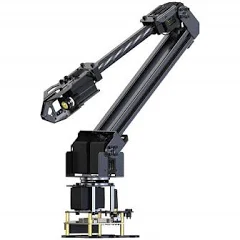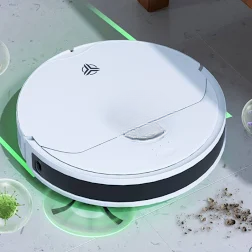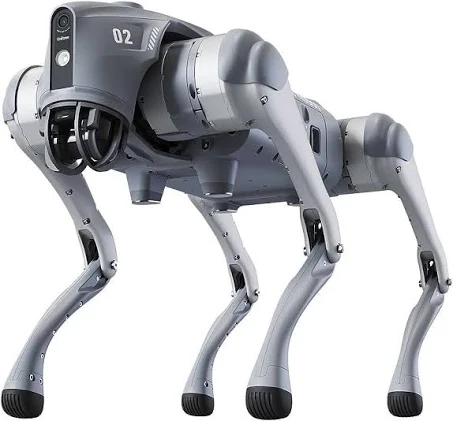Description
A programmable robot arm is a versatile tool for learning robotics, automation, and various applications. Here are key features and considerations when choosing a programmable robot arm:
Key Features to Consider:
- Degrees of Freedom (DOF):
- Determines the range of motion and flexibility of the robot arm.
- More DOF allows for more complex movements and tasks.
- Payload Capacity:
- The maximum weight the robot arm can lift or manipulate.
- Consider the weight of objects or tools it will handle.
- Reach and Workspace:
- Maximum distance the robot arm can reach.
- Consider the size of the workspace needed for your applications.
- Programming Interface:
- Software Compatibility: Look for robot arms compatible with popular programming languages like Python, C++, or visual interfaces.
- Ease of Programming: Intuitive software interfaces for creating and executing motion paths and tasks.
- Control Options:
- Manual Control: Direct control via handheld pendant or joystick for teaching and testing.
- Computer Control: Program motions and sequences via computer software or controllers.
- Sensors and Feedback:
- Encoders: Provide feedback on position and orientation accuracy.
- Force/Torque Sensors: Enable the robot arm to sense and respond to external forces.
- Integration with Other Systems:
- Compatibility with additional sensors, grippers, or vision systems for enhanced functionality.
- Ability to integrate with automation systems or production lines.
- Safety Features:
- Emergency stop buttons and collision detection to prevent accidents.
- Safety certifications for industrial or educational environments.
Applications of Programmable Robot Arms:
- Education and Research: Learning robotics concepts and programming skills.
- Prototyping and Manufacturing: Testing assembly processes and automation tasks.
- Laboratory Automation: Handling delicate or repetitive tasks in research and development.
Popular Programmable Robot Arm Brands:
- ABB: Offers industrial robot arms with various configurations and software options.
- Universal Robots (UR): Known for collaborative robot arms (cobots) suitable for diverse applications.
- Arduino: Provides affordable and educational robot arm kits for learning and experimentation.








Reviews
There are no reviews yet.